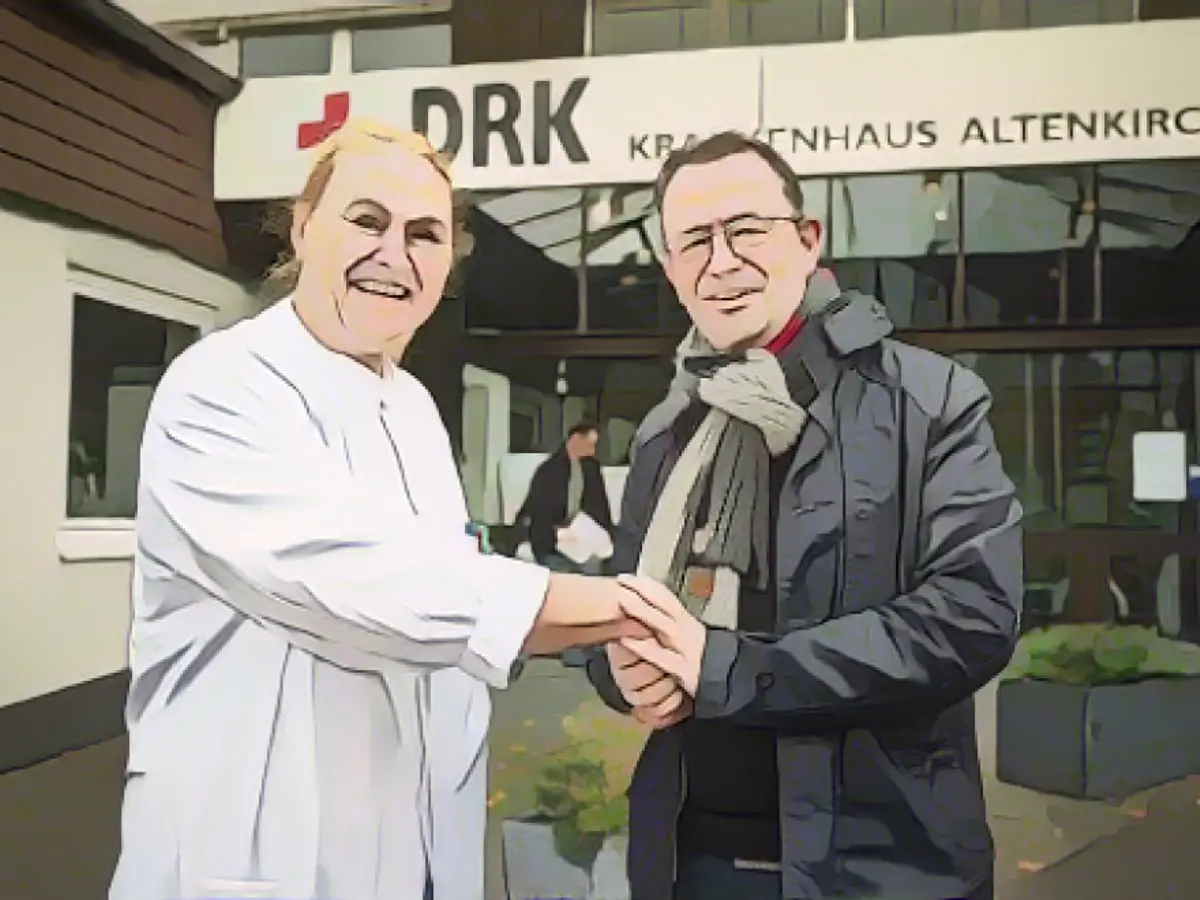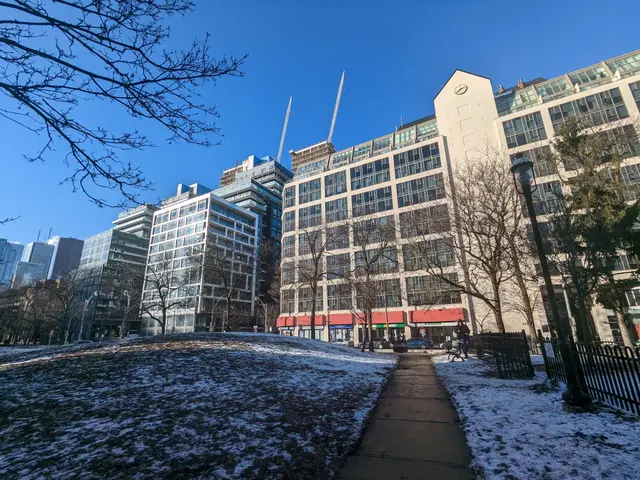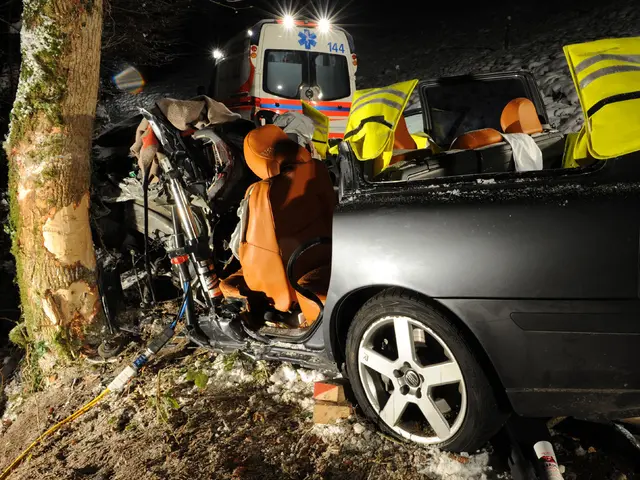Title: Save Our Lifesavers!
"Altenkirchen Hospital was my savior!"
Now, the local physician and works council representative, determined to safeguard his rescuers, opposes the DRK hospital association in Rhineland-Palatinate's plans to shutter the small, 170-bed hospital with its critically important trauma unit.
"This is a catastrophe for our community and a heartbreak for the people who work here," laments the doctor, a seasoned intensive care specialist.
Isabella Jung-Schwandt echoes his sentiment: "Should patients now endure a treacherous Westerwald journey to find the nearest hospital, offering subpar care compared to here?"
This tumultuous scenario unfolds amidst insolvency proceedings involving five DRK hospitals and the contentious hospital reform policies proposed by Health Minister Karl Lauterbach (SPD).

The Hospital Operator's Perspective
The DRK is promoting a "wide-ranging transformation process," according to a spokesperson for the hospital group. "Adaptation of the structures is economically essential, as the DRK Altenkirchen Hospital has been operating at a financial deficit for ten years, resulting in a financial loss of 17.1 million euros."
However, the works council argues that the numbers provided by the DRK are neither documented nor supported, and lucrative operations such as knee and hip surgeries have already been shifted to other DRK clinics.

The remaining components of the hospital's offerings include an inpatient child and adolescent psychiatry unit, a pain therapy day clinic, and a "24/7 emergency contact point." No decision has been made regarding the party responsible for these facilities. The Association of Statutory Health Insurance Physicians is already curtailing on-call practices.
The staff members find themselves in disbelief after learning about the plans in mid-October. In late October, an unprecedented demonstration of 1,000 individuals marched through the picturesque town, rallying to preserve the clinic. According to the operator, inpatient departments will be relocated by March 2024's end.
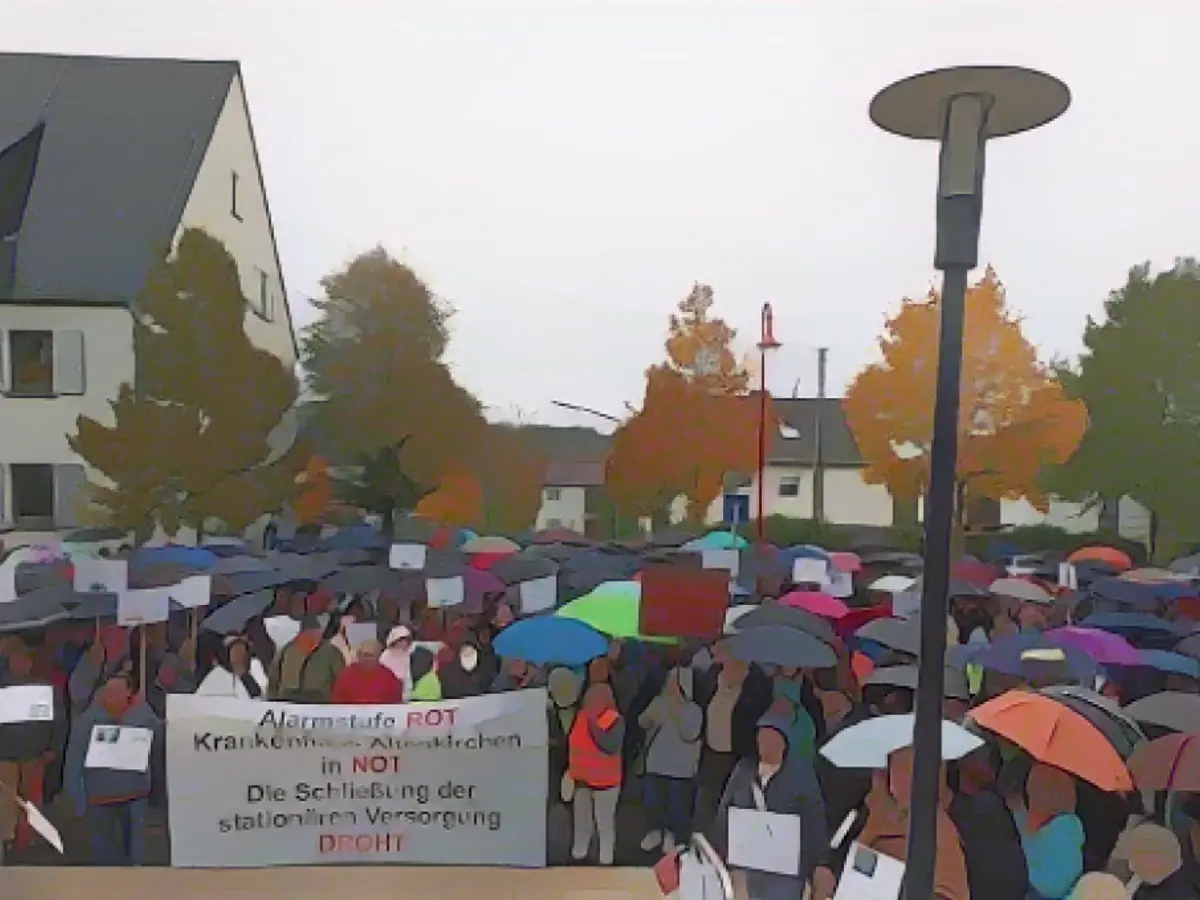
Health Minister Speaks Out
These changes mean Altenkirchen might become one of the "Level 1i hospitals" - Lauterbach's idea, offering comprehensive care in their immediate surroundings. In the event of required specialty care, patients could be dispatched to major hospitals.
Philip Ness, an ex-patient, questions the viability of severely injured patients and emergencies requiring timely care enduring a nerve-wracking one-hour journey to Bonn University Hospital.
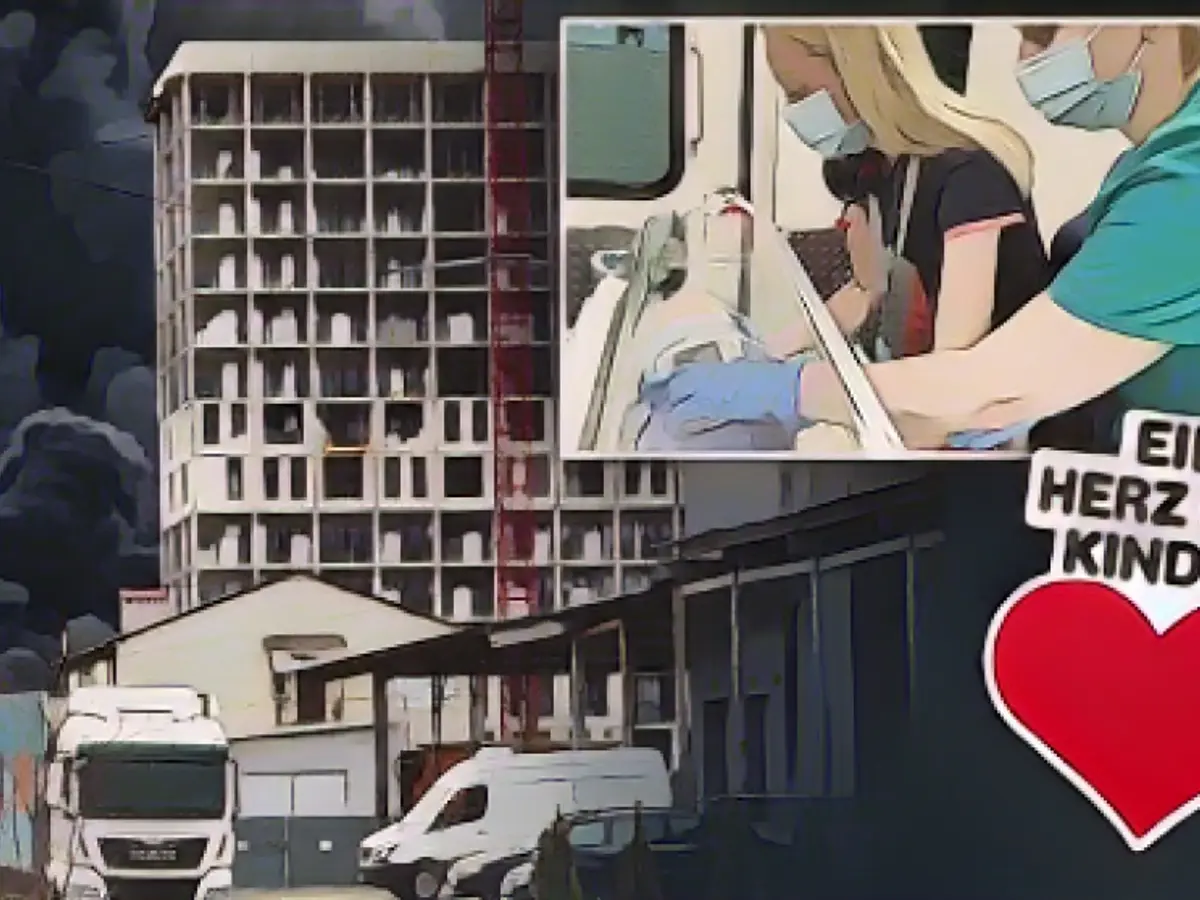
- The proposed closure of Altenkirchen Hospital and its transformation into a medical center has sparked concern from the local physician and works council representative, who views the change as a calamity for the community and its healthcare workers.
- The DRK hospital association in Rhineland-Palatinate is planning to shutter the hospital, with 170 beds and a trauma center for severely injured patients, to transform it into a medical center with an outpatient clinic, amidst ongoing insolvency troubles affecting five DRK hospitals and controversial hospital reform policies from Health Minister Karl Lauterbach.
- Isabella Jung-Schwandt, a doctor and works council representative, challenges the feasibility of patients traveling to the nearest hospital for required care, expressing concern that they may not receive the same level of medical attention as at Altenkirchen.
- The financial pressures facing hospitals, highlighted by insolvency proceedings affecting five DRK hospitals, present the background for these plans, which are a point of contention for Lauterbach.
- According to the works council, the figures presented by the DRK do not support the proposed closure and reconfiguration as economically viable, with lucrative operations like knee and hip surgeries already shifted to other DRK clinics.
- The DRK describes this as a "wide-ranging transformation process," with a spokesperson stating that adaptation of the structures is economically necessary for the Altenkirchen facility, which has been operating at a financial loss of 17.1 million euros over the past ten years.
- The hospital will continue to offer inpatient child and adolescent psychiatry units, pain therapy day clinics, and an around-the-clock “emergency contact point,” but it remains uncertain who will oversee these services.
- The Association of Statutory Health Insurance Physicians is already grappling with shrinking on-call practices due to financial constraints impacting hospitals.
- The employees were shocked to learn of the plans in mid-October and rallied in demonstration, with over 1,000 individuals protesting in the 6,000-inhabitant town to preserve the clinic.
- The inpatient departments are slated to be relocated by March 2024's end, and patients requiring urgent care would be forced to venture to Bonn University Hospital, an hour away from Altenkirchen.
Source:
- Enrichment Data:
The proposed closure of Alpha-Kirchen Hospital and subsequent transformation to a medical center is not directly mentioned in the provided search results. However, several articles and news items touch upon various medical and healthcare topics, including funding challenges for hospitals and public health concerns.
To obtain detailed insights about the repercussions of the proposed closure and transformation on severely injured patients and citizens in the region, additional research should focus on regional news sources, official declarations from the hospital or regional health authorities, and possibly direct communication with regional healthcare organizations.
Some relevant points to consider:
- Hospital Closures and Transformations: These interventions can have significant impacts on patient care, particularly for those requiring urgent medical attention. A hospital’s transformation may involve alterations in services, staffing, and facilities, resulting in changes in the quality and accessibility of care for severely injured patients[1].
- Regional Healthcare Systems: Closure of a hospital might exert pressure on the regional healthcare system, potentially leading to longer wait times, reduced availability of specialized care, and increased travel distances for patients seeking medical attention[1].
- Public Health Concerns: These changes can also raise public health concerns, including the potential for reduced emergency services, diminished availability of specialized therapies, and amplified workload on the remaining healthcare facilities[2].
For the most current and pertinent information about the Altenkirchen Hospital scenario, it would be essential to consult local news sources, official statements from the hospital or regional health authorities, and possibly get in touch with regional healthcare organizations directly.
[1] Juransek, M., Leszuszczynska, M., Kurz, A., & Neumann, R. (2022). Hospital closure and patient safety: Systematic review of the literature. BMJ Open, 12(3), e058436. doi:10.1136/bmjopen-2021-058436
[2] Gadács, A., Babušková, M., & Kundra, Z. (2021). Progress towards universal health coverage: The multifaceted differences between primary and specialized health care. Universal Health Coverage and Health Equity, 1(2), 100090. doi:10.1016/j.uhche.2021.100090
